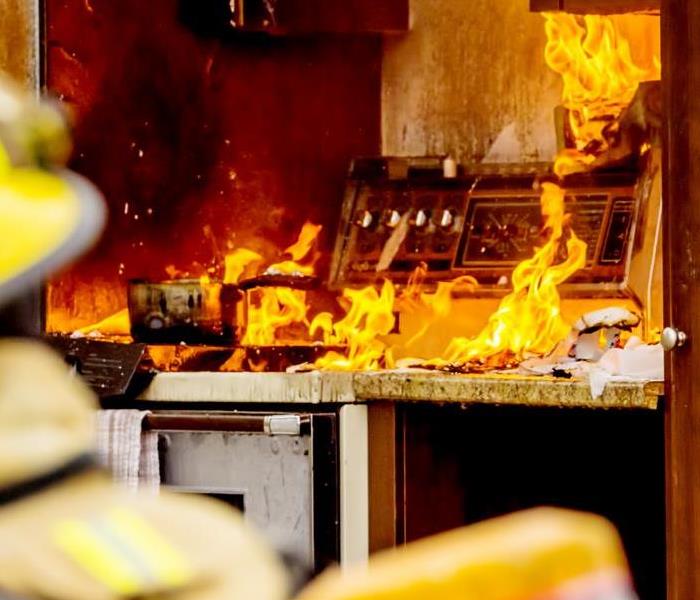The Effect of Soot and Smoke Damage on Kitchen Materials in Marco Island Homes
12/9/2021 (Permalink)
Restoring Marco Island properties after kitchen fires means thoroughly cleaning exposed materials.
Kitchen fires present substantial obstacles for restoration professionals to restore comfortable living conditions. Our SERVPRO professionals work fast to regulate conditions, contain the damaged areas, and begin mitigating loss. We are ready 24/7 to help.
Protein Residues Are a Challenge
Beginning fire damage restoration in Marco Island homes starts with addressing soot and smoke residues throughout the kitchen. Grease fires make formidable soil deposits that require specific types of cleaning and recovery. Chemical processes or more aggressive approaches often include:
- Dissolving
- Emulsification
- Controlled Demolition
Compromised Cabinetry Requires Attention
Not only can residues and soot impact the surface of cabinets, but the wood grain can also be affected by threats like blistering, charring, and trapped odors. All of these conditions must be individually assessed and addressed. In many cases, especially beyond the direct impact of the fire surrounding the stove area, cabinets can be cleaned with dry and wet cleaning practices. The closer to the source, the less likely this restoration is consistently possible.
Removing Harsh Odors from the Room
Kitchen fires can often result in overwhelming smells and malodors. Burned food, for example, can have a formidable scent. Grease fires and protein residues also produce strong and palpable odors. Our responding professionals must first reduce the strength of these smells with counteractant practices before fully removing them with deodorization equipment and products.
Fire damage restoration can be an urgent need for homes contending with the effects of a kitchen grease fire or flare-ups from appliances like an oven. Thick residues and harsh odors can prevent comfortable living conditions, and our SERVPRO of Naples / Marco Island team can respond fast to help with mitigation. Give us a call today at (239) 302-5700.






 24/7 Emergency Service
24/7 Emergency Service